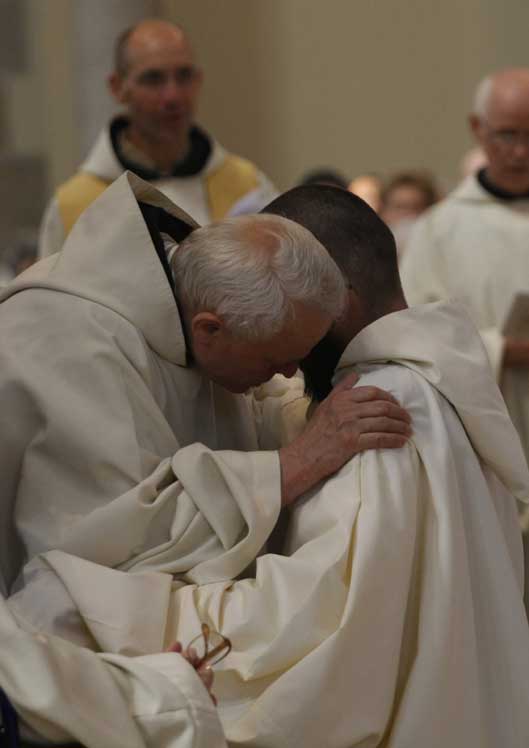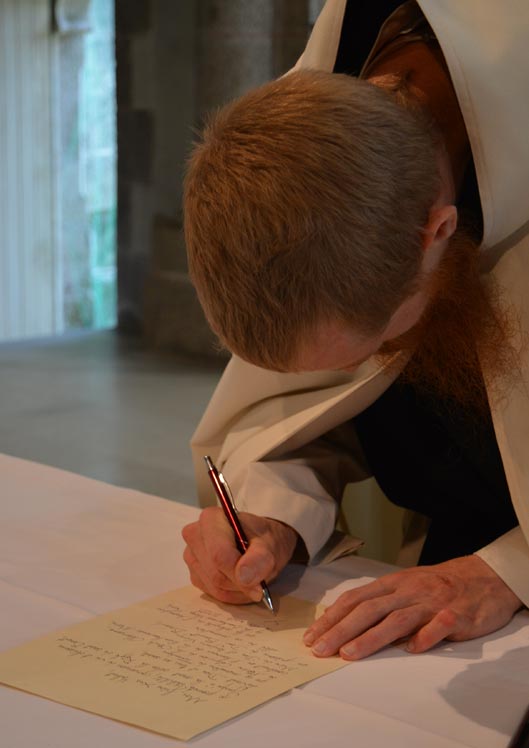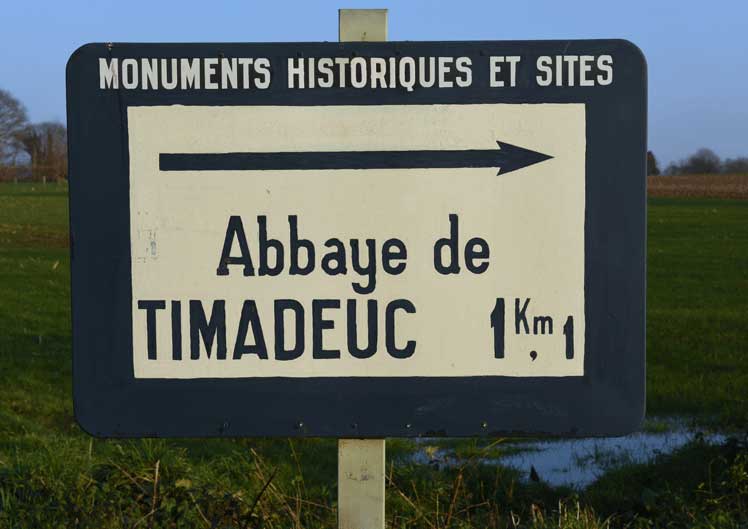Come and you will see
"What can be sweeter to us, dear ones, than the voice of the Lord inviting us ?"
The Rule of Saint Benedict, The Prologue.
Come and you will see
In the Gospel according to John, John the Baptist, looking at Jesus passing by said to two of his disciples

"Behold, the Lamb of God."
The two disciples heard his words and followed Jesus.
Jesus turned round and seeing that they were following him, said to them :
"What are you looking for ?"
They said to him :
"RABBI - which translated means Teacher -, Where are you staying ?"
He said to them :
"Come and you will see." (John 1,35-39)
In response to that invitation "Come and you will see", a great number of men and women have answered Christ :
"Here I am".
Among them, some choose the monastic vocation lived and shared with others as an individual and personal path to walk in Christ’s footsteps and live the Gospel following a founder – for us : Saint Benedict, the father of western monasticism -.
However, it is important to place this choice of life within the overall dynamics of Christian life.
The Second Vatican Council, in its reflection about the Church (Lumen Gentium) underlines the universal vocation towards holiness of all members of the Church. Among the multiplicity of states of life, the monastic vocation appears as a "precious gift" made to the whole of the Church as an anticipation of the Realm to come.
Convinced that Benedictine-Cistercian life is a grace which is not reserved for a few supermen or cranks, we ask you quite simply :

Have you ever thought of becoming a monk ?Our asking you this question does not mean forcing your freedom but rather allowing it to express itself.
If your answer is positive,
You will maybe knock at the door of the noviciate ?,this will be a time of learning and of discernment and of becoming acquainted with one another.
You will experience - and this may be harsh - everything that is weak and inadequate in the community ... and in yourself ! Only then will you grow and discover the Presence of God beside you, day after day in faithfulness and perseverance.
When the time comes, your choice will lead to a permanent commitment made of your own free will, until death...
If, in conscience, you answer no, the question will not have been asked in vain !
It will have allowed you to strengthen your own choice and to continue along your own way where you have already committed yourself to following Christ...


